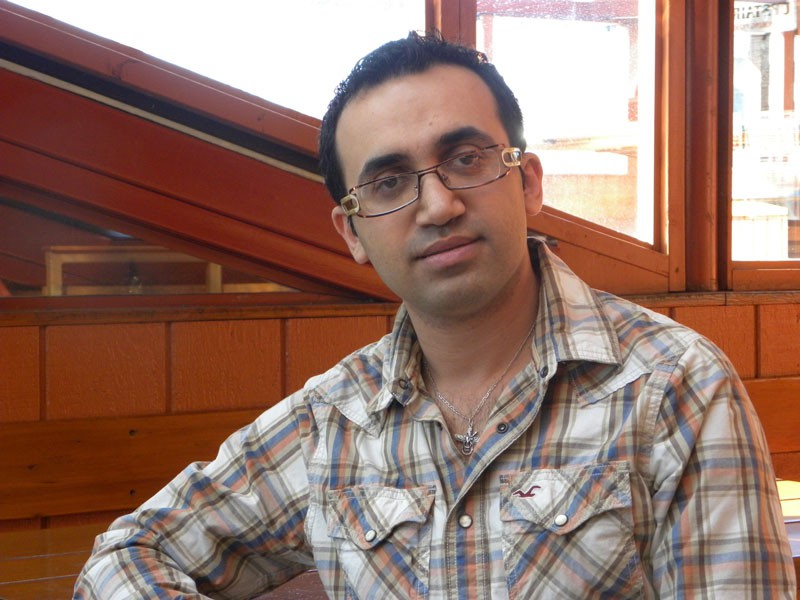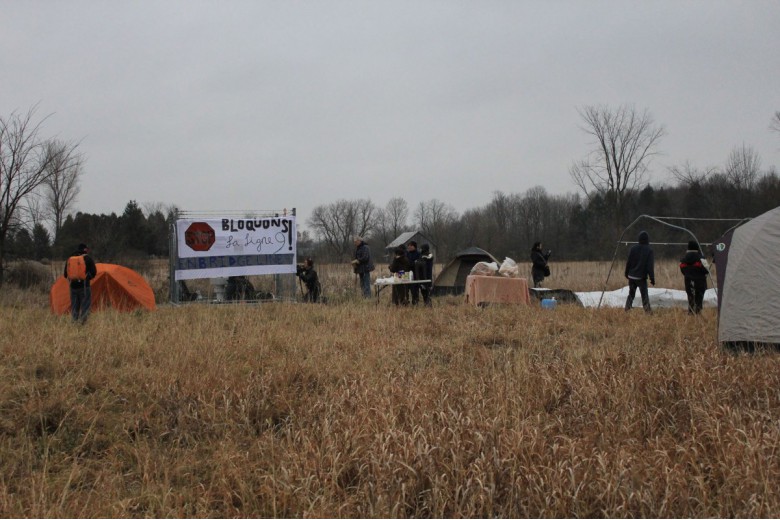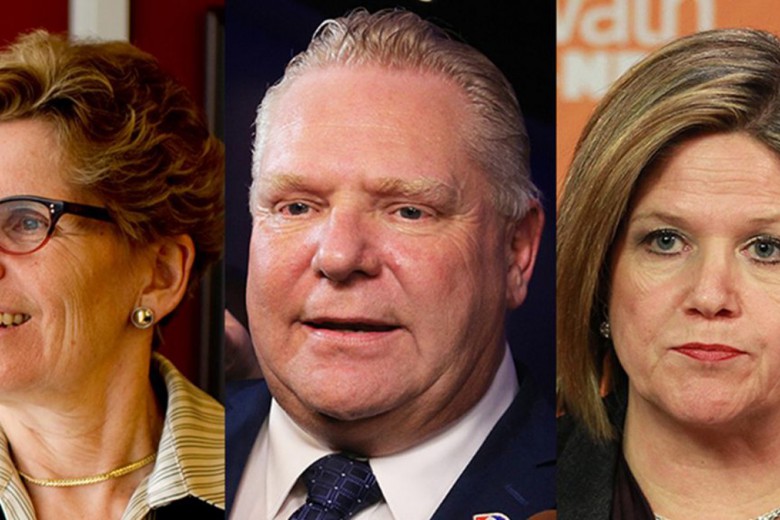
“As the train crossed the border into Turkey, I looked out the window at the Iranian flag illuminated by the border lights. More than ever I felt a connection to the waving cloth. Despite all I had endured it was still my country – my home – that I was leaving behind. I leaned back in my seat, grateful for its coolness, closed my eyes and waited for the sense of relief I longed for.
Leaving, finally, I had expected to feel light, comfortable, safe. Instead my stomach tightened with sadness and anger. Why was I forced to flee? To leave behind my family, friends and home just because of who I love? As the flag disappeared in the darkness I vowed I would continue my work. I would work on behalf of the gay men and women left behind, living in fear of torture and execution.
I promised myself that one day I would return to my country free to be who I am. Until that day I would live in exile.”
— Arsham Parsi
Arsham Parsi is a tireless organizer for queer rights, both internationally and in his native Iran. He is proud to call Canada home, but in the wake of proposed changes to Canada’s refugee status determination system and the elimination of any reference to gay rights in the new version of Canada’s citizenship guide, some wonder whether Parsi would be admitted to this country if he claimed asylum here today.
Arsham Parsi has lived most of his life in silence and fear. Like many gay men, he felt from a very young age that he was different from his peers. As a teenager he began to associate this sense of difference with his attraction to men. He had little access to information about homosexuality but he soon realized that in order to survive he would have to hide his true feelings and conform to the conservative expectations of his family and his culture.
“A friend of mine loaned me a book that had a short chapter about homosexuality,” Parsi recalls. “It was the first thing I had ever read about it. It described the sin of sodomy and said that under Sharia law it was punishable by execution: hanging, being cut in half by a sword, stoning.
“I became obsessed with stoning. Would it hurt? How long would it take to die? I began to imagine myself buried in sand to my neck waiting for the rocks to hit me. I believed this was how my life would end. I was 14.”
In Iran, homosexuality is illegal. Punishment for engaging in sexual behaviour with someone of the same sex includes imprisonment, flogging and execution. Socially, the stigma attached to homosexuality carries the consequences of isolation, forced heterosexual marriages and exclusion from one’s family. As Parsi says, it means a life lived in fear.
Parsi finished high school, completed his mandatory military service and worked several jobs in Iran and Dubai. Despite his efforts to ignore his attraction to men, his sexual orientation was always at the forefront of his thoughts. He tried to deny his feelings through a series of increasingly severe forms of self-punishment. Nothing worked. Finally, he came to accept that this was who he was and that he had little control over it. What he could control, he realized, was the isolation in which he lived. He became driven by the need to find others in similar circumstances. Through the Internet he was able to reach out to other gay Iranian men and his feeling of being alone began to lessen.
As his circle of friends grew, however, he became increasingly concerned about the stories he was hearing. People forced into loveless marriages to preserve their family’s honour; gay men entrapped by Iran’s secret police force through the Internet or in city parks; friends arrested and tortured until they agreed to provide the names of other gay men. When two of his friends committed suicide out of desperation, Parsi felt he had no choice but to act. He would start by tackling the social isolation felt by many queer Iranians and then begin to challenge the culturally and legally sanctioned homophobia impacting their lives.
Relying on the relative anonymity of the Internet, he started Iran’s first underground queer organization. Starting with the email addresses of his gay friends and acquaintances, Parsi began to disseminate positive information about homosexuality.
“It started small. Mostly it was me sending encouraging emails and information to our subscribers. As I learned more and I saw how important it was for these people to find connection with others, I expanded my work. We developed a website and finally, with the help of a friend in Norway we registered the organization there. I started to give interviews with international media to share our stories. I wanted others to know that we existed and that we were struggling. One of my proudest moments was when we held our first Celebration of Voice.”
Celebration of Voice emerged when Parsi and others involved in his organization recognized the importance of creating a space for queers in Iran to come together, share their stories and understand that they are not alone. It was impossible, however, to hold such an event in a physical location – the risk of being discovered and arrested was far too great. Instead, a private Internet chat room was created and invitations to attend this virtual event were distributed to the organization’s subscribers. More than 50 people participated in this first community forum. Parsi had broken the walls of silence that had isolated gay Iranians. More than six years later he still receives emails thanking him for organizing the forum.
Parsi’s organization continued to expand, providing support and opportunities for connection for the Iranian queer community. His international media profile increased as he strove to educate those outside of the country about the Iranian situation. He understood the risk he was taking, but his fear was outweighed by the sense of responsibility he felt to his community.
It wasn’t long, however, before the risks became too great to ignore and his fears were realized.
In 2003, Iran’s secret police raided a party attended by members of Shiraz’s queer community. Several of Parsi’s friends were arrested, tortured and “outed” to shamed family members. Capitalizing on the detainees’ fear, officials collected additional information that led to a series of raids over the next several months. The police harassment and intimidation drove the community further into silence and isolation. Parsi was able to learn from those arrested that he was a target and that his organization was a topic of many interrogations. As the days and weeks went by he could feel them getting closer. He knew that if he was to protect himself and his family he had no choice but to flee.
Telling his family nothing of the true reason he was leaving, Parsi boarded a train, crossed the border into Turkey and claimed refugee status. After almost 18 months in limbo, he was finally granted refugee status by the UN Refugee Agency. In 2005, he was resettled to Canada.
Immediately upon arriving in Canada, Parsi resumed his work. He is now the executive director of the Toronto-based organization Iranian Railroad for Queer Refugees (www.irqr.net).
Iranian Railroad for Queer Refugees is actively working on behalf of more than 200 Iranian refugee claimants living in limbo throughout the world as well as those hiding in Iran. “This work is so important,” says Parsi. “It is what I was meant to do.”
“It is essential that the international community knows about the human rights abuses against the gay and lesbian community in Iran. We work to increase public awareness of these issues. We also provide support – emotional, legal and financial – to refugees and immigrants who have been forced to leave Iran because of persecution on the basis of their sexual orientation or gender identity.”
The persecution Parsi speaks of is legally sanctioned in Iran. The Iranian Penal Code explicitly defines the crime of Lavat as a sexual act between males that includes penetration or the rubbing of thighs or penis against thighs. Lavat carries a punishment of death; the method of execution is left to the discretion of the presiding judge. If one or both of the accused is a minor, the punishment is 74 lashes of a whip. The law also outlines the consequences for non-penetrative offences: kissing brings 60 lashes, while lying naked with another man under a blanket earns 99 lashes.
This is not just a case of an obsolete law remaining on the books. It is exercised regularly and its effects extend further than to those being punished.
“Each time a person is publicly denounced and punished for being gay, the entire community suffers,” Parsi says. “Fear and silence grow and queers in Iran are made to feel the desperation of their situation. No one protests. We are made to feel invisible. Despised yet invisible.”
According to Parsi, one of the biggest challenges facing refugee claimants is the requirement to prove their sexual orientation to the Immigration and Refugee Board deciding their case. Forced to live in silence in Iran, many seek refuge in heterosexual marriages to escape family and societal scrutiny, and many refugee claimants do not have any official connections to a queer community. Even after fleeing the country, a lifetime of fear does not quickly leave a person and many do not seek out membership in gay or lesbian organizations or feel immediately comfortable disclosing their orientation to authorities. In light of this, proving they are gay or lesbian can be difficult.
“It is a delicate situation. One of our roles is to support refugee claimants in proving their sexual orientation. But it is often difficult even for us to determine who is queer or who is making a false claim. If we have confidence in the individual’s case we support their claim with a legal affidavit and provide evidence of the reality for the queer community inside of Iran.”
The burden of proof facing queer refugee claimants will get even heavier if proposed reforms to Canada’s refugee system announced at the end of March by Immigration Minister Jason Kenney are implemented. Included in these reforms are shorter timelines for cases to be heard and the denial of access to an appeal process for claimants from countries determined to be “safe” by the Canadian government.
While it is unlikely that Iran will be deemed a safe country with its well-documented history of human rights abuses and the growing threat of war with the West, these reforms may still impact claimants’ ability to successfully prove their case. Because a positive outcome of a claim depends on the individual’s ability to convince a Board of their sexual orientation, a successful determination of these challenging cases often requires a longer period of trust-building between the claimants and their legal representation as well as the option to appeal.
Parsi is confident in the positive relationship his organization has built with Citizenship and Immigration Canada. “We have a good relationship with Minister Kenney and his department. He is aware of our situation and is supportive. Decreasing wait times for claimants may be a good thing if the Refugee Board members are well informed of the unique situation facing queer refugees. We need to continue to educate the Canadian government and its representatives to ensure that each case is adjudicated fairly. We have more work to do in this area.”
Parsi believes strongly in the prospects for change in Iran and states that it is this belief that allows him to continue his work. He sees the opposition movement that arose during and after the 2009 summer elections as one example of a growing social consciousness in his homeland.
Many Iranians were looking to the elections as a means to reform the country’s political system and to reclaim rights promised under the country’s own constitution. When Mahmoud Ahmadinejad was declared the winner on June 12, reformist Mir-Hossein Mousavi’s supporters immediately took to the streets in protest. Wearing green (the colour of Mousavi’s campaign), the protesters demanded that Ahmadinejad be removed from the presidency. This was the first large-scale demonstration of its kind since the country’s 1979 revolution. A swift and violent response from the government only served to strengthen the growing unrest. Diverse segments of the country’s population were united under a common desire for change.
According to Parsi, the Green Movement provided an opportunity for Iranians to acknowledge their differences in a new way. Instead of creating barriers along lines of gender, religion, political belief and sexual orientation, a greater understanding of common experience began to emerge. The regime’s denial of basic human rights for everyone became the dominant discourse, and people began to share their diverse experiences of oppression with one another. While he recognizes that reforms to the penal code may take some time, Parsi believes that this cultural shift in understanding and the increased willingness to learn from one another is perhaps even more important if homophobia is to be challenged.
“I have heard from many queers in Iran that the protests have allowed them to share their experiences with others. People are saying: ‘It doesn’t matter what your sexual orientation is or what your religious or political beliefs are. The important thing is that we are here together as Iranians and we want change.’
“We need to bring discussions of homosexuality in Iran out of the closet and put them on the kitchen table. This is where real change will happen.”
It is to this possibility of change that Parsi has dedicated his life. Canada has provided him with a safe environment in which to live and continue his work, while the Internet has enabled him to reach across borders in an effort to overcome the isolation facing many queer exiles. Like many refugees with a dream of returning home one day, however, his heart remains in Iran with his family and community.
“Change will come to Iran. I know it will. Some day queers in Iran will have their human rights respected. They will be free to be who they are – love who they love – and not be afraid of retaliation or torture or execution. I hope to be a part of that change.”
Parsi smiles as he thinks about this. “One day I will no longer have to live in exile. One day I will go home.”


_780_520_90_s_c1.jpg)


